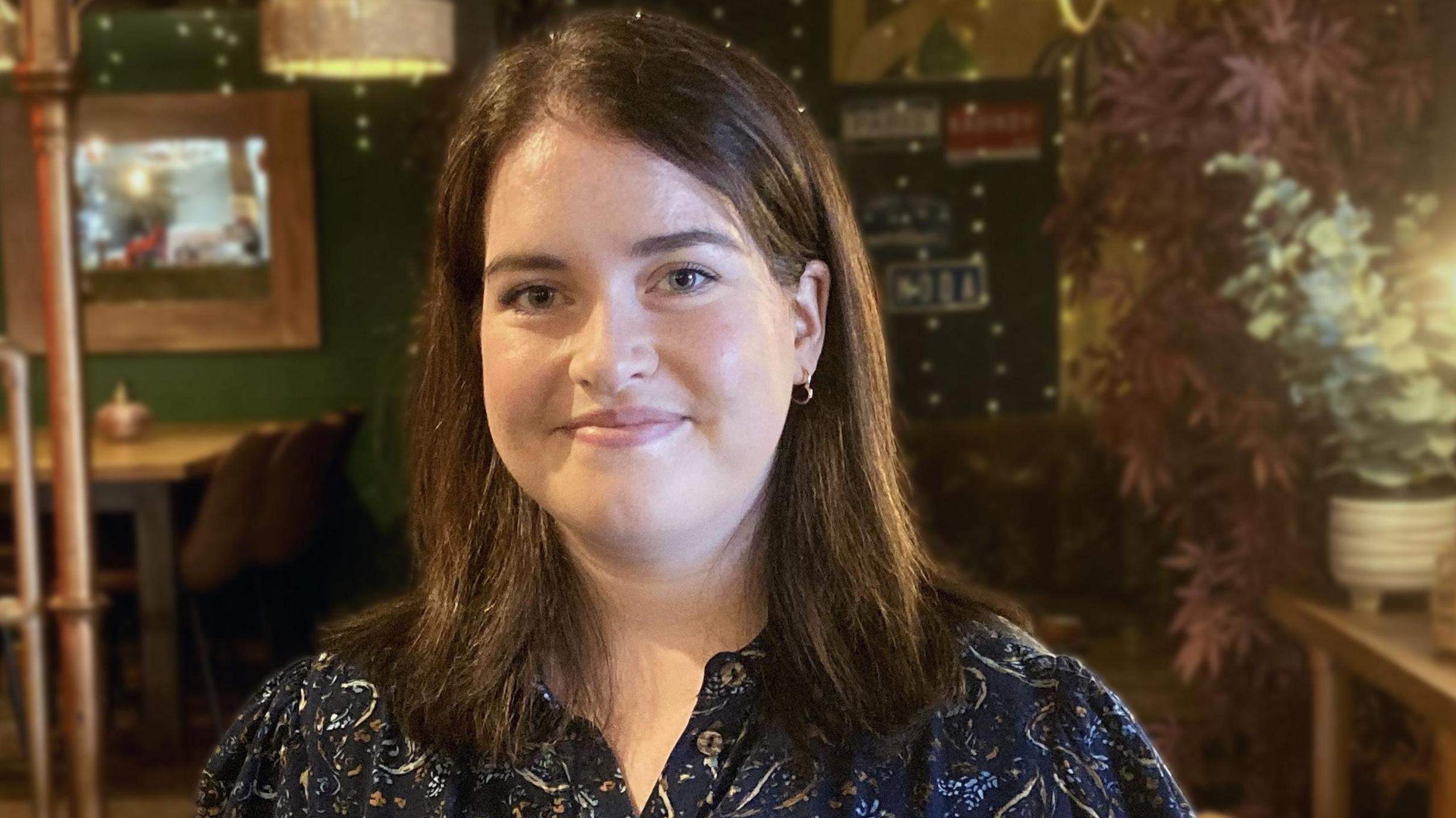
Emma wants to find friends to talk about "really weird stuff" like her love of time travel fiction
The day Emma Shores was diagnosed with autism has become such a defining moment in her adult life that she celebrates it like a "second birthday".
The first thing on her mind when she got the news was making friends with other people living with autism, people she felt might truly understand her for the first time in her life.
"I thought maybe I'll feel less like an alien," she said. But things were not that easy.
Emma had been in her mid-20s, living in London, and following her dream of becoming a primary school teacher when she had what she describes as a "major meltdown".
Her life derailed, she was taken in by mental health services, misdiagnosed as having a mental illness, given medication and therapy.
Emma moved away to be with family in rural Wales - and then by chance during a therapy session, she said someone spotted she might have autism instead.
It meant that by the point she was ready to understand herself and looking for friends to help her navigate her new world - she was living in a rural town, far away from most of what she knew.
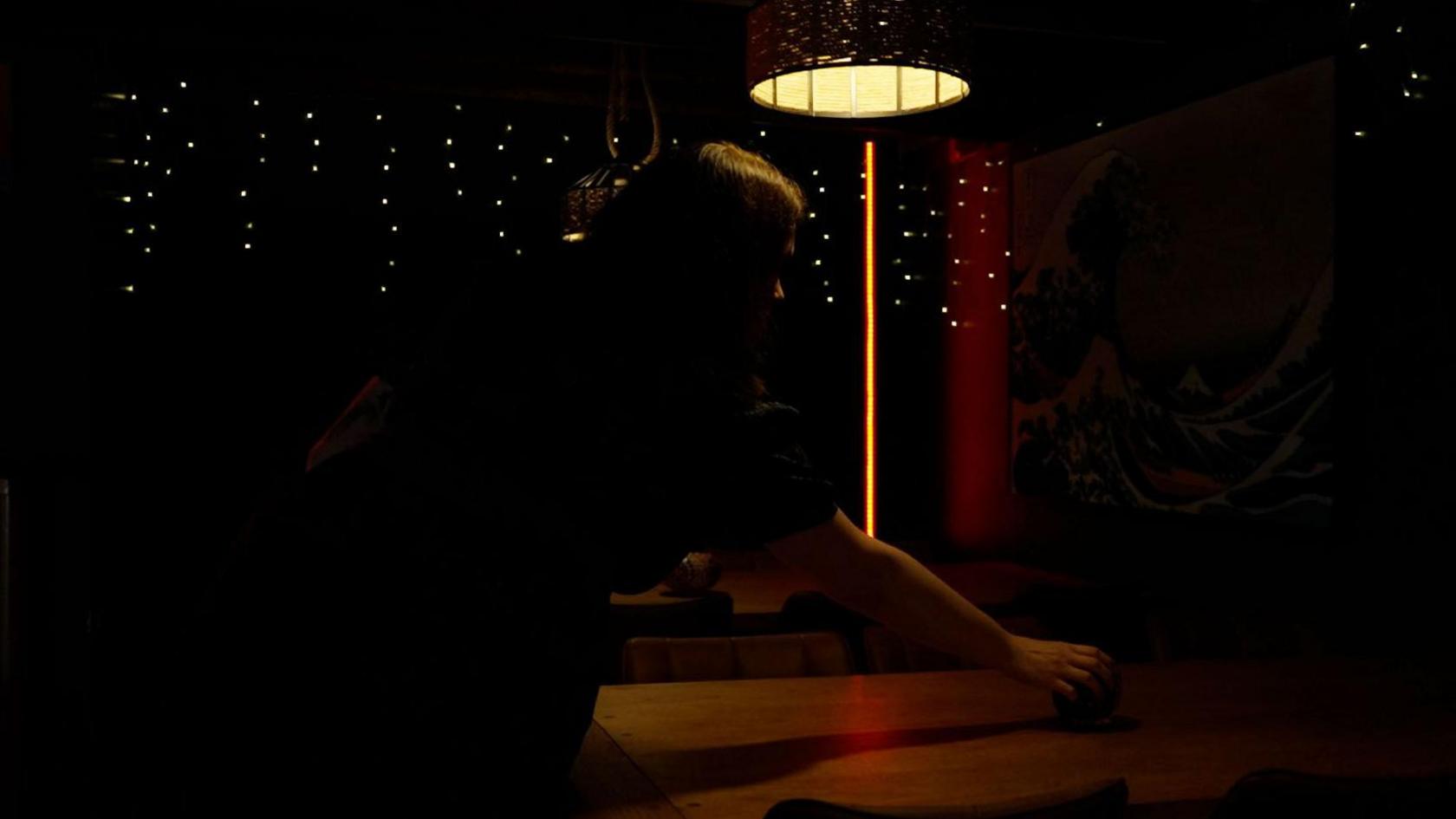
Emma is turning down the lights in the local cafe for her group's first meeting
"After the diagnosis I remember I started feeling really happy," said the 33-year-old.
"But there was also a bit of grief too, because I wasn't going to be this person I'd had the idea of being."
Emma tried looking for groups that might help her make friends.
She had also just become a mum, so tried parenting groups as well but found them loud and overstimulating.
Then she heard about a new project designed to encourage people with autism to start their own social clubs.
It appealed to her straightaway.
"For me, feeling alone was like having a native language that's different to everyone else around you," said Emma.
"I think the main reason I want to start a club is to help others, to make my son proud one day. I also don't want anyone to feel that sense of loneliness I have."
Feelings of loneliness and isolation
The project, run by the National Autistic Society (NAS), aims to encourage adults living with autism to start their own peer support groups, where members can regularly meet for activities such as bowling, pizza or games nights.
Research by the charity suggested 80% of adults living with autism experience feelings of loneliness and isolation.
"Some of the things that we get regularly are around not being confident with people who are used to being bullied or picked on," said Simon Humphreys, who started the first social club for people living with autism in Colwyn Bay.
"They don't like to mix and they feel very vulnerable.
"People just feel desperate and alone. At least this way we are talking and developing a friendship family."
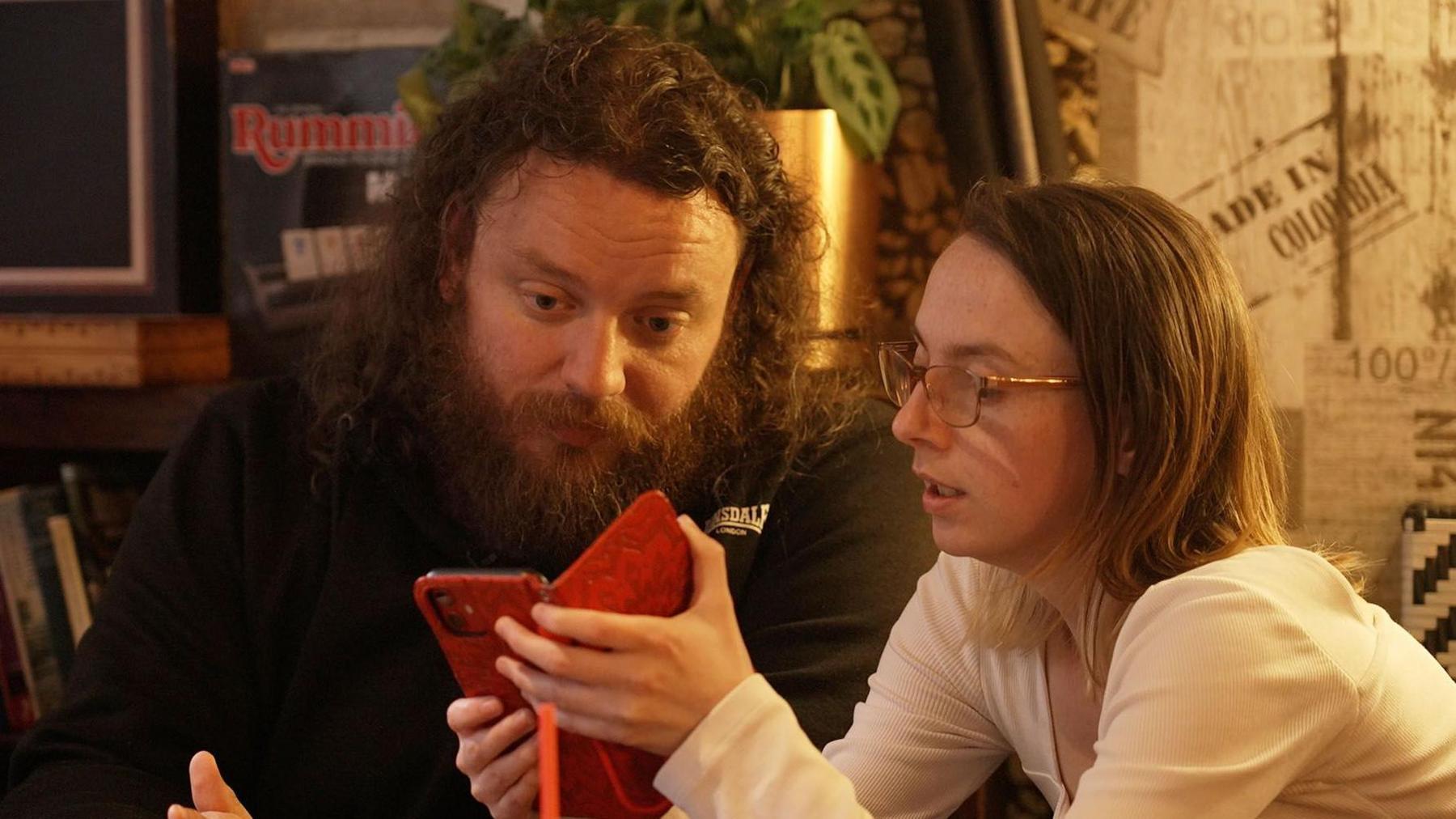
Those attending the friendship clubs say they can "geek out" without fear.
Like Emma, former wrestler and hospice worker, Emrys Forrester also only found out he was living with autism in his mid-20s.
He said attending Simon's group in Colwyn Bay had helped him to understand who he was.
"I've always felt like a socially awkward person," he said.
"As an adult, once you're diagnosed you get the paperwork and stuff but then you're off. That's it.
"This is great because it's able to get you interacting with other people with autism who have real experiences. If you understand what they go though it can help you too."
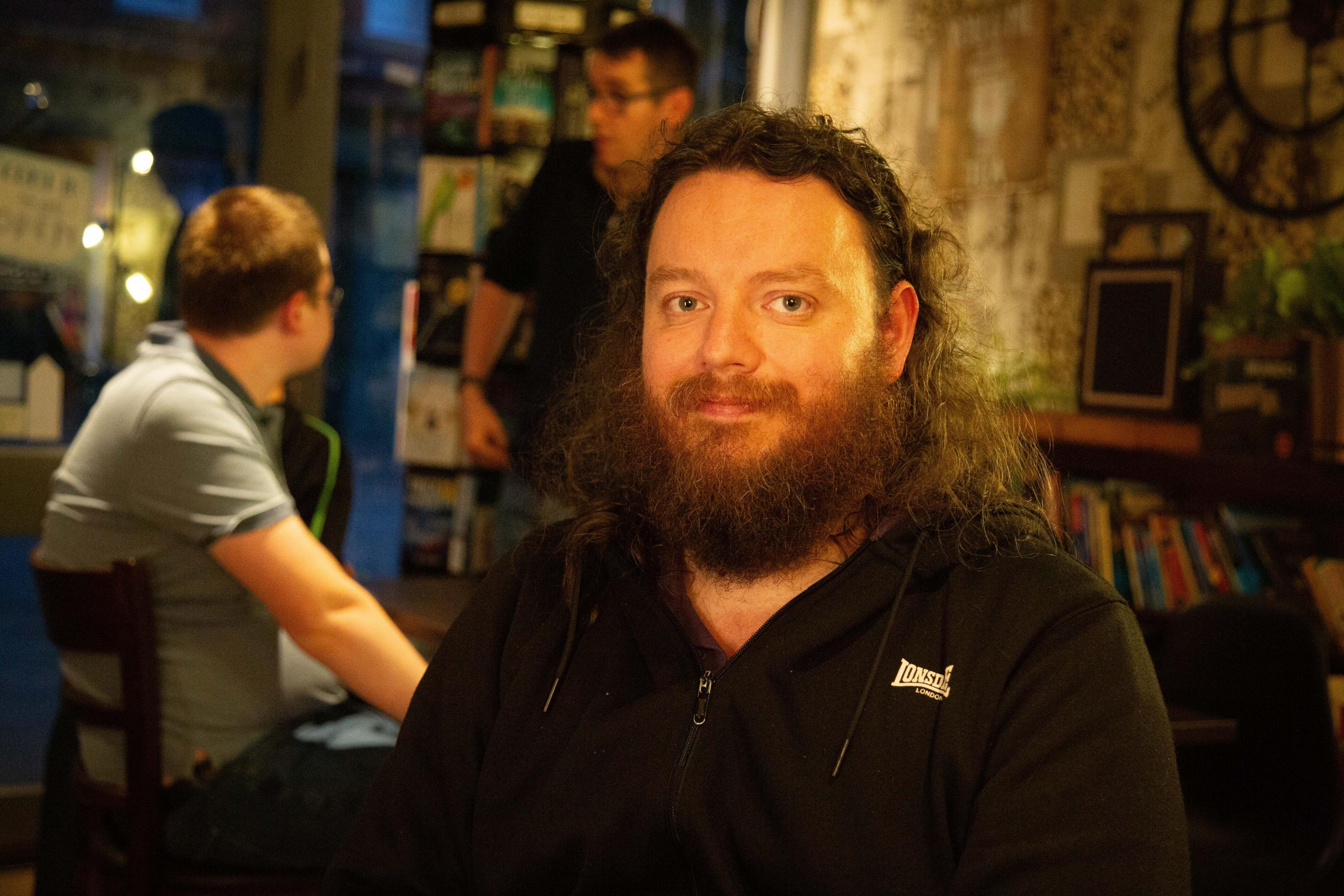
Emyrs said he wouldn't normally feel comfortable going to a busy cafe
For Declan Boland, 29, it is an opportunity to talk for hours without fear of being judged.
"Talking is frightening for a lot of autistic people," he said.
"I have to mask a lot of what I do and concentrate, make sure I stick to a topic and don't go off on a tangent.
"Here you can just embrace the weirdness. You meet a range of people with different interests, but we always have that specialist subject, that we've absorbed like a sponge.
"When we get to geek out, honestly, it's the best thing in the world."
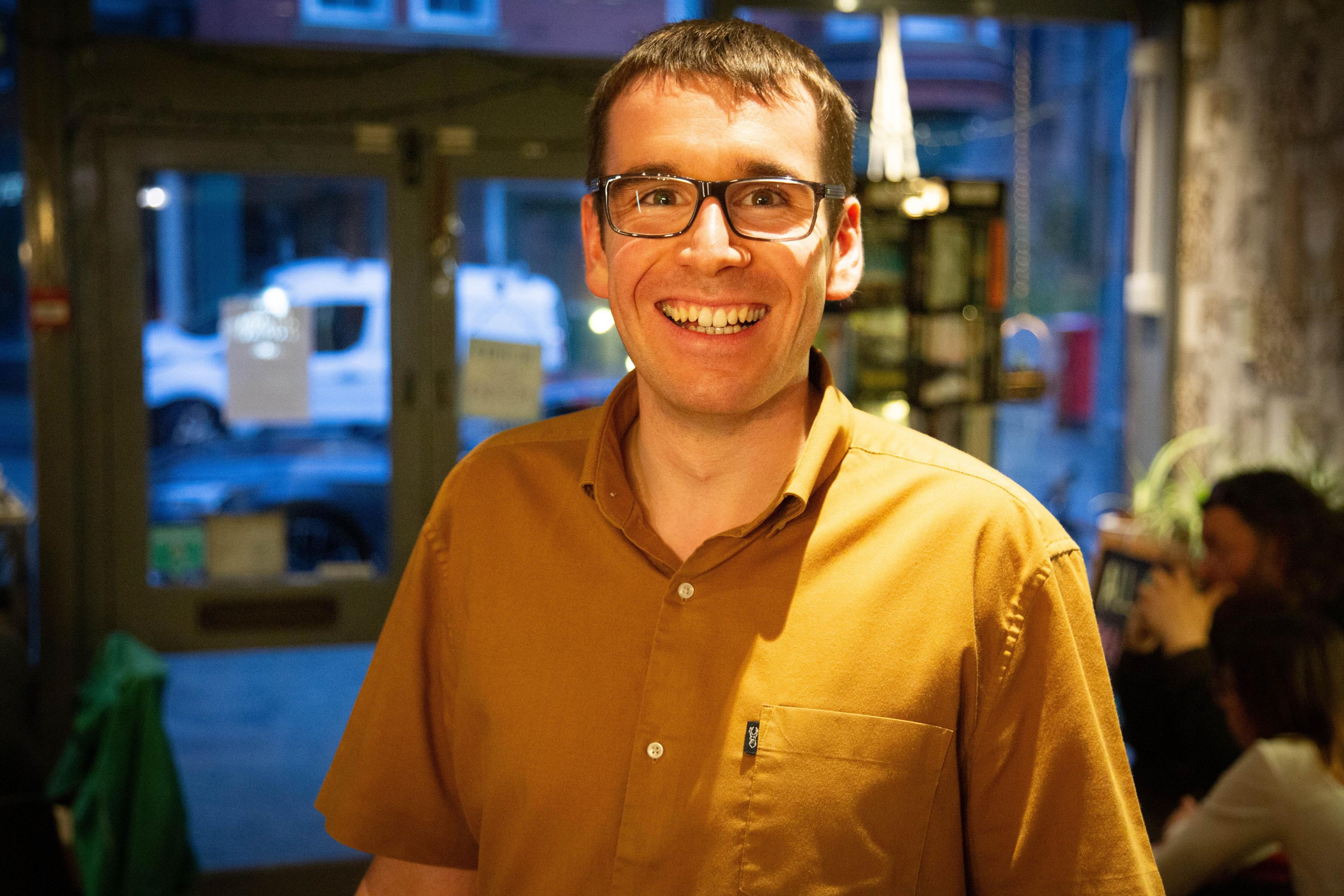
Declan loves to "embrace the weirdness" at his friendship group
Declan's special interest is cars, others at the Colwyn Bay club love talking for hours about gardening, films or even Thomas the Tank Engine - without fear of judgement.
In Abergavenny, it is her love of time travel fiction that Emma dreams of sharing with potential new friends.
Together with local councillor Kyle Elridge, who also lives with autism, Emma is starting the Abergavenny spectrum social.
They have struck an agreement with a local café to turn off the music and turn down the lights for their group when they meet once a month.
If successful, it will be the eighth group in Wales, with plans by NAS to roll the project out in England shortly.
"It'll be super special and cosy," said Emma.
"I'm hoping I'll just grab a few drinks and talk about really weird stuff.
"None of that normal support group kind of stuff. It's going to be really fun and an opportunity for people to be themselves."
From BBC
